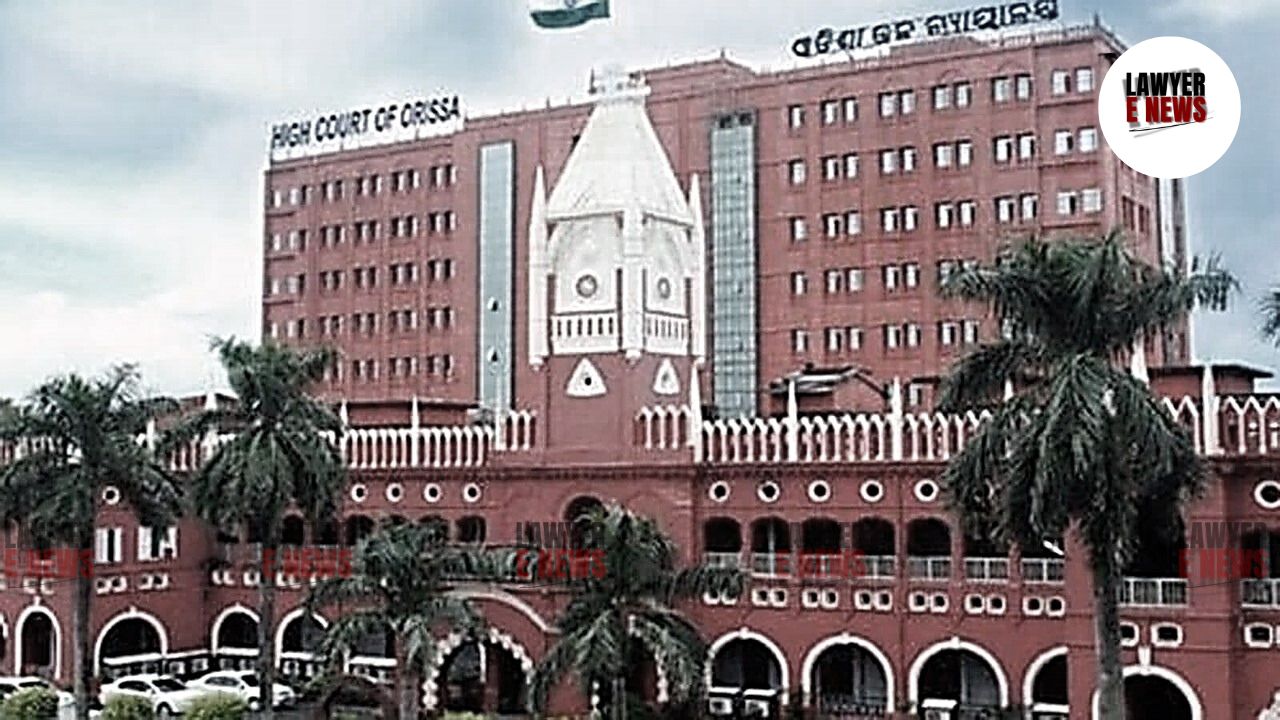-
by sayum
17 February 2026 8:32 AM



Senapati Judgment Not a Blanket Embargo—When State Had Already Recommended, It Cannot Later Plead Repeal: Orissa High Court ruled that the repeal of the 1994 Grant-in-Aid Order cannot be invoked to deny benefits to institutions and employees whose cases had already been recommended prior to the repeal. The Court found that such a denial was arbitrary, discriminatory, and in violation of settled legal principles, and directed the State to verify and extend GIA within six months.
Justice Biraja Prasanna Satapathy laid down the principle unequivocally: “The decision in the case of Anup Kumar Senapati cannot be taken as a complete bar in those cases where the employees and/or institutions were otherwise eligible and recommendations were made prior to the repealing of the GIA Order, 1994.”
“State Cannot Withdraw the Ladder After Helping Some Climb—Identical Employees Have Been Granted GIA Under Same Order”
The Court’s sharpest rebuke came when examining the State’s selective implementation of orders. While denying the appellants, the government had simultaneously complied with identical Tribunal and Court orders in other cases, including those finally affirmed by the Supreme Court.
Justice Satapathy pointed out the contradiction: “When similarly situated employees have received benefit under the GIA Order, 1994, by virtue of the State’s own compliance, it would be arbitrary, unreasonable and discriminatory to deny others the same.”
The record showed that in several cases—including Sucharita Jena, Arun Prasad Tripathy, and others—the State had already disbursed GIA benefits, while continuing to litigate against other claimants with the same eligibility and timeline.
“Judgment Must Be Read in Context—Senapati Case Turned on Absence of Timely Recommendation, Not on a General Bar”
The State heavily relied on State of Odisha v. Anup Kumar Senapati, (2019) 19 SCC 626, to argue that no GIA claim could be sustained after the 2004 repeal. The High Court dismantled this reading of Senapati, noting: “Every judgment must be read as applicable to the particular facts. In Senapati, there was no proof that the institutions had applied or were recommended before repeal. That is not the case here.”
Quoting the Supreme Court itself, the Court stressed: “Expressions in judgments are not to be read as statutes. They are contextual. When the facts change, the law must be re-applied accordingly.”
“Recommendations Made Before 5 February 2004 Cannot Be Rendered Illusory—State’s Delay Cannot Destroy Legal Entitlement”
The crux of the matter was that in many cases, the institutions had been recommended for inclusion under the 1994 GIA scheme, as evidenced by communications from the Directorate of Secondary Education dated 31.01.2004, just days before the repeal. However, due to State inaction, no notification was issued.
The Court declared this unjust: “Once the recommendation has been made prior to the repeal, the right of the employee or institution is not merely a hope—it matures into an enforceable claim.”
The denial, held the Court, amounted to punishing the applicants for the administrative delays of the State.
“Not All Who Slept Are Barred—Some Knocked on the Door and Were Ignored”
The State argued that many institutions had delayed approaching the authorities or courts. The High Court responded with clarity: “Delay cannot be a valid ground when institutions had already applied and were recommended. The only delay was the State’s own failure to notify and act.”
Thus, while accepting that not all claims could survive post-repeal, the Court drew a crucial distinction between those who sat idle and those whose files had already reached the government’s desk before repeal.
Verify All Claims Where Recommendation Was Made Before 05.02.2004 and Grant GIA Within Six Months
In a firm direction, the High Court ordered: “All relevant authorities are directed to verify, within a period of six months, whether the concerned institution or employee had been recommended before 5 February 2004. If so, benefits under the 1994 GIA Order shall be granted.”
Appeals filed by the State in such cases were dismissed, while appeals filed by eligible claimants—previously rejected on Senapati grounds—were allowed.
The Orissa High Court’s verdict restores fairness and consistency in the long-contested Grant-in-Aid (GIA) litigation, especially for teachers and institutions who had done everything required before the scheme was abruptly withdrawn. It draws a principled distinction between technical repeal and matured right, between State delay and applicant neglect, and makes clear that the law cannot reward administrative arbitrariness.
As the Court reminded: “When equity, eligibility, and official recommendation all align—denial on the ground of repeal amounts to injustice, not legality.”
Date of Decision: 19 March 2025
